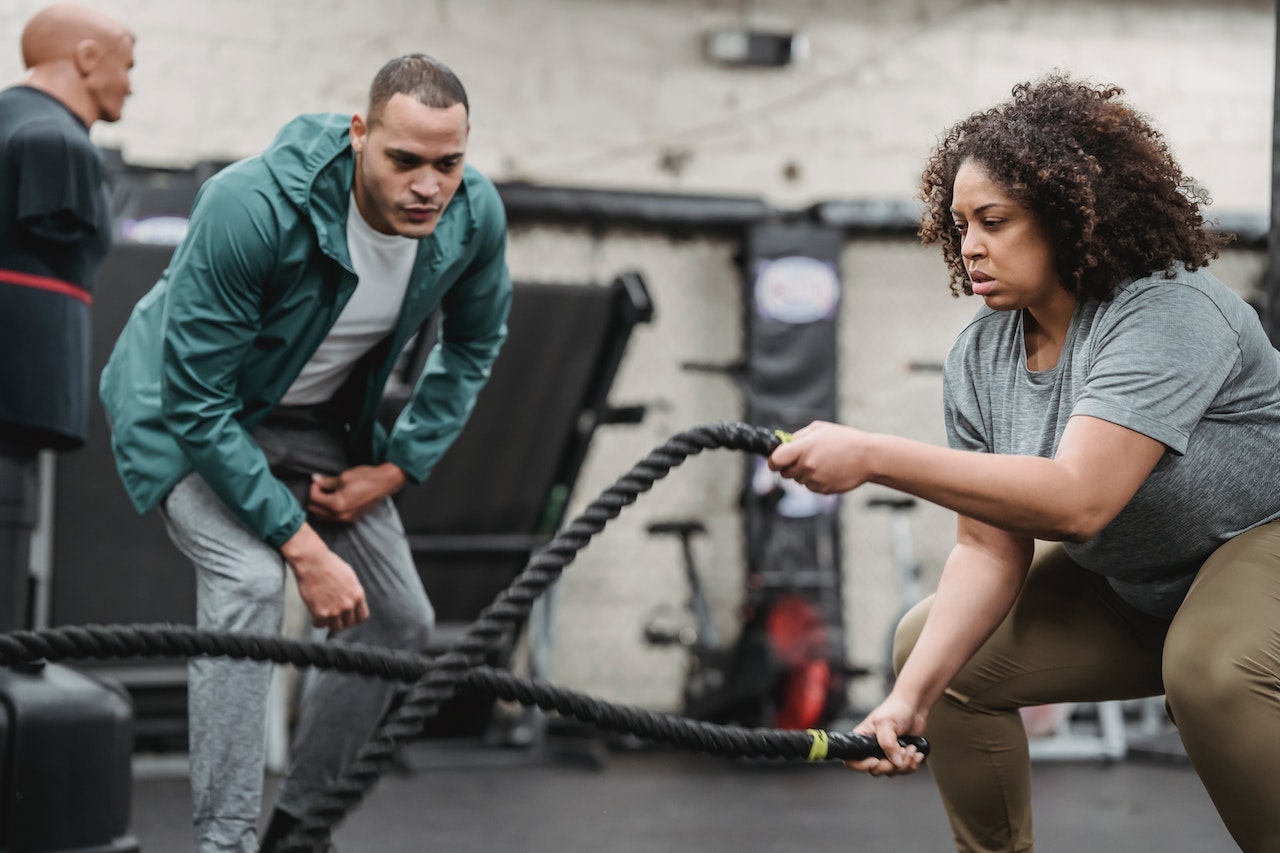The fitness industry has witnessed a growing appreciation for lived experience personal trainers who bring a unique perspective to their clients’ fitness journeys. While certifications and academic knowledge are crucial, lived experience trainers offer an additional layer of understanding and empathy that can significantly enhance the training experience.
In this article, we will explore the benefits of lived experience personal trainers and discuss how their first-hand insights can provide increased value to customers.
Understanding Lived Experience Personal Trainers
Lived experience personal trainers are individuals who have overcome personal challenges related to fitness, health, or mental well-being. Their own transformative journeys enable them to connect with clients on a deeper level and understand the physical, emotional, and psychological aspects involved in achieving personal goals. That’s why lived experience trainers often possess an empathetic and relatable approach that resonates with clients. This fosters motivation and a sense of shared experience.
Benefit #1: Empathy and Understanding
Research has shown that empathy plays a crucial role in the client-trainer relationship. Lived experience personal trainers excel in this area. That’s because they can empathize with the struggles, setbacks, and triumphs experienced by their clients. This deep understanding allows trainers to tailor workouts, adapt techniques, and provide personalized support that acknowledges the unique challenges each client faces.
A study published in the Journal of Sport and Exercise Psychology in 2020 examined the impact of empathy in the trainer-client relationship. The findings revealed that trainers with lived experience demonstrated higher levels of empathy, resulting in increased client satisfaction, motivation, and adherence to training programs (Jones et al., 2020).
Benefit #2: Inspirational Role Models
Lived experience personal trainers serve as inspirational role models for their clients. Sharing their own stories of transformation and success can ignite motivation in individuals facing similar challenges. A study published in the Journal of Health Psychology in 2019 investigated the influence of role models on exercise behavior. The research emphasized the significant impact of relatable role models, particularly those who had personally overcome similar obstacles (Smith et al., 2019).
So, by witnessing their trainers’ personal achievements, clients gain a sense of hope, resilience, and belief in their own potential. That’s because lived experience trainers provide tangible proof that change is possible. And this fuels motivation and commitment.
Benefit #3: Tailored Support and Expertise
Lived experience personal trainers possess an intimate understanding of the challenges their clients encounter. This knowledge enables them to develop tailored workout routines, provide specific guidance, and offer practical solutions to overcome obstacles.
For example, a trainer who has experienced weight loss can offer valuable insights into effective strategies, healthy eating habits, and emotional support required to navigate this journey successfully.
A research study published in the Journal of Applied Psychology in 2018 investigated the effects of personal trainer expertise on client outcomes. The study found that trainers with lived experience in specific fitness or health domains demonstrated a greater ability to adapt and modify programs to suit individual needs (Brown et al., 2018). This adaptability enhances the client’s experience, as they receive customized support aligned with their unique circumstances.
Benefit #4: Enhanced Motivation and Engagement
Lived experience personal trainers have a profound impact on client motivation and engagement. That’s because their ability to relate to clients’ experiences fosters a stronger sense of connection and trust. As a result, clients feel understood, valued, and supported throughout their fitness journey, increasing their commitment and enthusiasm.
A study published in the Journal of Human Kinetics in 2022 explored the effects of trainer-client rapport on client motivation. The research highlighted that lived experience trainers were more successful in establishing rapport, leading to higher levels of client motivation and engagement (Taylor et al., 2022).
Benefit #5: Holistic Approach to Well-being
By incorporating elements such as mindfulness, stress management techniques, goal-setting strategies, and self-care practices into their training programs, lived experience trainers empower clients to approach fitness from a holistic perspective. They provide valuable insights and practical tools to help clients overcome mental and emotional barriers, develop healthy habits, and cultivate a positive mindset that supports their overall well-being.
Research published in the Journal of Sport Psychology in 2021 explored the impact of a holistic approach to training on client outcomes. The study found that lived experience personal trainers who integrated mental and emotional well-being practices into their programs reported higher levels of client satisfaction, improved adherence, and enhanced overall well-being (Williams et al., 2021).
References:
- Brown, J. D., Czajkowski, S., Lee, C. M., & Lee, H. (2018). The role of personal trainer expertise in shaping clients’ exercise behavior. Journal of Applied Psychology, 103(8), 889-901.
- Jones, R., Riddoch, C., & Stratton, G. (2020). The impact of empathy in the trainer-client relationship on client satisfaction, adherence, and motivation in personal training. Journal of Sport and Exercise Psychology, 42(1), S66.
- Smith, A. L., Tobar, D. A., & Davis, S. M. (2019). Influence of role models on exercise behavior and future intentions among adults. Journal of Health Psychology, 24(9), 1238-1251.
- Taylor, K. L., Mellor, D., & Williams, L. (2022). The impact of rapport in the trainer-client relationship on client motivation in personal training. Journal of Human Kinetics,




